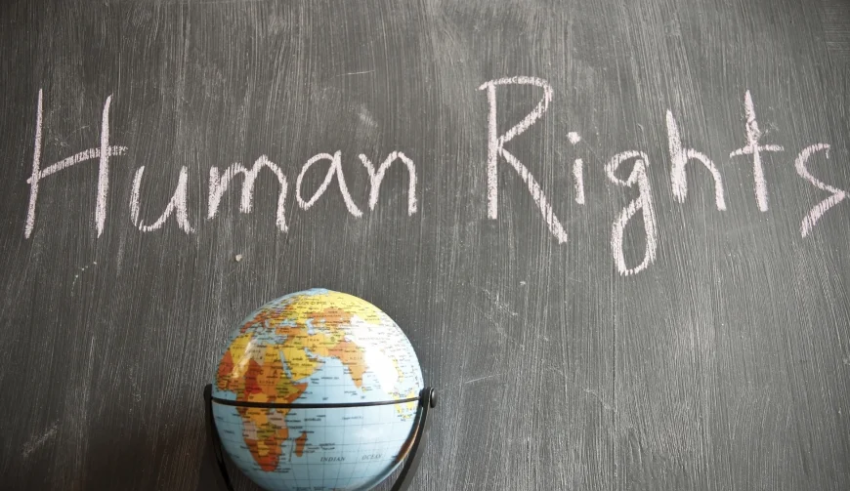
Signing on to International Human Rights Instruments is often considered to be an important indicator of compliance with human rights around the world. Many countries are criticized on the global level for their failure in signing, ratifying, or acceding due these documents. However, signing on a piece of paper brings about little difference when it comes to human rights violations. While being a signatory to human rights documents does indeed create a sense of responsibility, many countries fail to comply with their obligations under these instruments.
Under International Law, a country signing or acceding to international instruments may integrate it into its domestic legal system due dualist or monist system. Under some constitutions, incorporation of international obligations into the domestic law occurs upon ratification (Monism). For others, international law must be reflected in national legislation (Dualism).
Some countries, like the United States, apply a mixed monist-dualist approach. In essence, International law is often not enforceable merely by ratification. On the other hand, many countries that ratify these treaties make reservations, often defeating the purpose of the instrument in itself. When this is the scenario, why ratification remains a popular indication of respect for human rights must be investigated.
Many Nations who disguise themselves as harbingers of democracy, freedom, and transparency fail to meet the threshold of the human rights treaties they have signed. Country Reports are a testimony to the same. Country Reports are extensive data on a country’s policies, procedures, laws, and their implementation to verify compliance with various treaties. Country Reports are formulated by International Monitoring Bodies and Human Right Treaty Bodies such as the Human Rights Committee, Committee against Torture, Committee on the Rights of Child, etc. These committees supplement most Instruments to ensure the proper implementation. Other governments and civil societies also publish these reports, which are thoroughly researched and studied. For e.g., the Russian Federation is a signatory to the International Covenant on Civil and Political Rights and International Covenant on Economic, Social, and Cultural Rights. They have also ratified many of the Geneva Conventions. However, references to many previous Country Reports, patterns of human rights violations and disregard for human rights were recorded before the trigger of the international armed conflict in Ukraine. If the International community had paid attention to this or the lobbying of multiple civil societies, the measure could’ve been taken to prevent the atrocities we witness today. While one cannot say with certainty that human rights violations can be stopped, at least laymen will not be blinded by false promises. Interestingly, the United States, presently the only country in the UN that has not signed the Convention on the Rights of the Child, is placed better than many States who have signed on to the treaty. While the United States has a long way to go in protecting children’s rights, criticizing the nation for not signing on to the CRC may be misplaced aggression.
However, this is not indeed to discredit the importance of these human rights treaties. They remain a trusted source of customary international law codified to reflect human rights. The International community’s work in advancing these documents must be applauded. But, when attesting to a country’s human rights profile, Country Reports must be given equal, if not more, importance. They must be given due consideration, especially while Nations assume a prominent role within International Organizations. In 2021, India was voted into the UN Human Rights Council with an overwhelming majority. However, it ranked 101th among 106 nations for upholding fundamental human rights. Country Reports around the globe have criticized India for suppressed freedom of the press, arbitrary arrests, systemic racial or ethnic violence, and discrimination and violence against the LGBTQIA+ community. If due diligence was placed on these Country Reports, countries with such gross levels of human rights atrocities who are incapable of ensuring the rights of their citizens may be prevented from voting and contributing to the ‘protection and promotion of human rights for the world at large.
The International community must reflect on its stance and contribute to wedging the gap between International Human Rights Instruments and Country Reports. They must be given equal weightage in ascertaining a country’s progress before bestowing on it praises for its commitment to human rights.
References
Elections and Appointments (2020, October 13) United Nations. Retrieved on 27 July 2022)
https://www.un.org/en/ga/75/meetings/elections/hrc.shtml
India gets re-elected to U.N. Human Rights Council for 2022-24 term (2021, October 15) The Hindu. Retrieved on 29 July 2022)
United Nations Office of the High Commissioner. Retrieved on July 28, 2022
Country Profiles | Human Rights in India, 2022 (2022) HRMI Tracker. Retrieved on 30 July 2022) https://firebasestorage.googleapis.com/v0/b/hrmi-dataportal.appspot.com/o/pdfs%2Fen-IND.pdf?alt=media&token=f72b0081-8ed5-4461-8a02-e9eac8e32d03
Mehta S., There’s Only One Country That Hasn’t Ratified the Convention on Children’s Rights: US ( 2015, November 20) ACLU. Retrieved on 31 July 2022 https://www.aclu.org/blog/human-rights/treaty-ratification/theres-only-one-country-hasnt-ratified-convention-childrens
2021 Country Reports on Human Rights Practices: India (2021) U.S. Department of State. Retrieved on 29 July 2022) https://www.state.gov/reports/2021-country-reports-on-human-rights-practices/india/
By The European Institute for International Law and International Relations.















